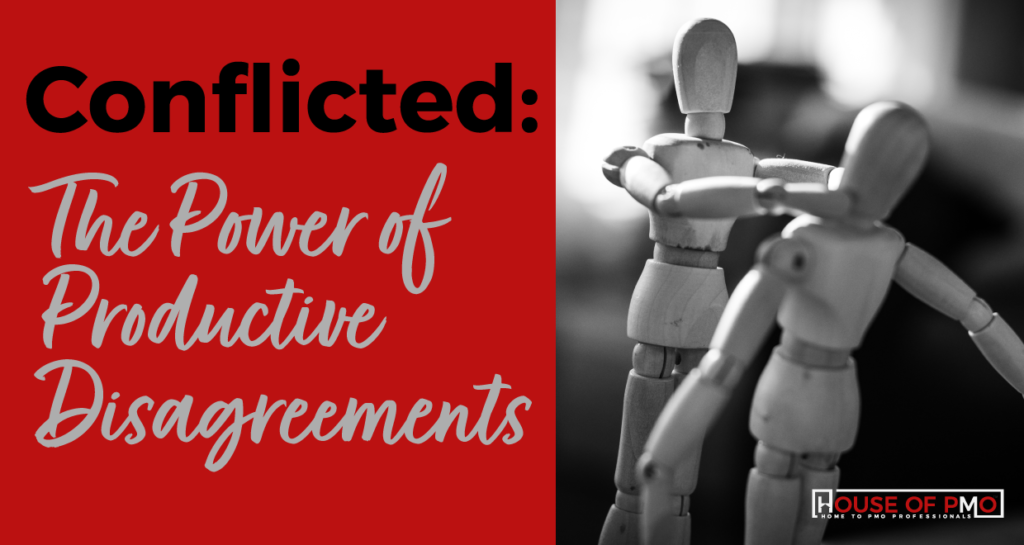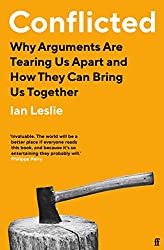Watch back all our PMO Conference sessions
PMO Conference 2021 \\ Conflicted – The Power of Productive Disagreements – Ian Leslie
 In our closing keynote from the PMO Conference in 2021, we welcome Ian Leslie, author of acclaimed books on human behaviour, described by Malcolm Gladwell as “one of my favourite writers”. Ian’s latest book, Conflicted, is about the power of productive disagreement.
In our closing keynote from the PMO Conference in 2021, we welcome Ian Leslie, author of acclaimed books on human behaviour, described by Malcolm Gladwell as “one of my favourite writers”. Ian’s latest book, Conflicted, is about the power of productive disagreement.
The book itself features fascinating stories from the Beatles, the Wright Brothers, Ku Klux Klan, Socrates and hostage negotiators – quite the mix!
Session Recording
The Deck
![]()
Conflicted – The Power of Productive Disagreements – Ian Leslie
Session Notes
This session was one full of stories, definitely one to sit back and watch. The session notes here are some of the insights from the book, ten different rules of productive arguments:

Before getting into the nitty-gritty of an argument – if it’s going to be productive, there has to be some kind of relationship – especially one based on trust. What’s interesting about this one is for a conversation to go well – you have to like and respect your interlocutor – you can even fake that at first! A quote from a police negotiator in the book, “The moment they sense you dislike them, they can ignore what you say”.

To disagree well you have to give up trying to control what the other person thinks and feels. Be careful with the language you use (“Be reasonable”, “Calm down”) because it just annoys people. Telling someone what to think or feel will always backfire. You’re trying to understand what lies behind someone’s words and actions, you’re trying to understand their underlying feelings. Great advice: be alert, are you in an argument with someone’s position or their emotions?

You need to make people feel good about themselves. Disagreements become toxic when it becomes a status battle. When a person is being hostile or aggressive towards us, we often want to respond in kind. If it’s ever going to be productive you need to break this pattern. Also, stop trying to be right all the time, you’ll never really listen, hear and learn about someone else. If you can convey that the other person is in some way right, they’ll start to open up to your viewpoint.

Be aware of the cultural differences between you and others – and don’t automatically assume that it is them that are different. A great way to understand more about others in a disagreement is to use the classic line, “So if I’m hearing you right, what you’re saying is….”

Be more curious – don’t be in a rush to win the argument – instead try and be interested and interesting. Don’t rush to judgement and this advice should be interesting to practice, “In arguments, when you’re encountering views with which you strongly disagree, make an effort to find a kernel of truth in what’s being said, At the very least it will help you respect them”

Remember that mistakes can be positive – they make you human. Be quick to apologise and do it authentically. You’ll be able to strengthen relationships when others see your humility. The advice is to practice losing an argument – because we have to learn to live with our failures. The more time practising in “low stakes situations, the better we will be when the situation arises for serious consideration”

Try to avoid getting into simple and predictable patterns of arguments – “think about producing novelty and variation, be surprising.” The advice is to find good disagreers – people who have different views from us but still manage to articulate them well. Social media seems to be the go-to place for this!

Productive disagreements have rules. It’s the rules that create freedom. When there are agreed norms and boundaries that support self-expression, people open up more in their
disagreements. This will also include defining the disagreement upfront, taking a step back to clarify what the argument is about – checking to see it’s not just a misunderstanding.

Only lose it if you’re meant to lose it! “Your worse adversary is yourself”. Keep it calm and check your tone of voice.

All these rules are subordinate to this one: just be yourself and make an honest human connection.
